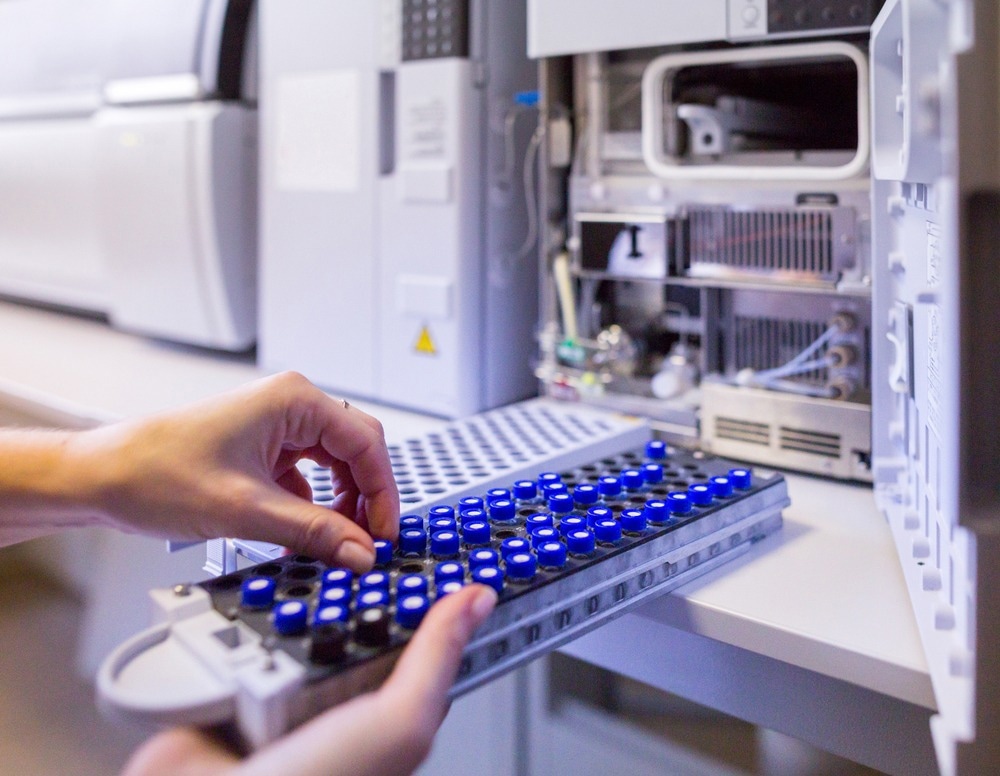Metabolomics is a rapidly growing field of science that systematically identifies and quantifies metabolites in biological samples. The field has become increasingly important due to its unique perspective relative to the fields of genomics and proteomics.
Studies have shown that even small alterations to the metabolome can reflect specific pathological states. In recent decades, metabolomics has emerged as a powerful tool for identifying potential disease biomarkers and uncovering the metabolomic profile of various diseases.
Metabolomics is helping to improve diagnostic and therapeutic offerings for many diseases, both physical and psychological. Techniques that allow us to investigate the metabolome, will, therefore, become increasingly important.
Here, we discuss how mass spectrometry is used in metabolomics research and how advancements in this field are helping to drive advancements.
Mass Spectrometry Tools in Metabolomics
Mass spectrometry has become a well-established tool in metabolomics due to its high sensitivity, high throughput, and capability to detect multiple molecules in complex biological samples.
Three mass spectrometry-based techniques are commonly used in metabolomics: gas chromatography-mass spectrometry (GC-MS), liquid chromatography-mass spectrometry (LC-MS), and imaging mass spectrometry (IMS).
GC-MS in Metabolomics
GC-MS is a fairly developed MS technology in metabolomics. Its advantages include its relative inexpensiveness, easy operation, stability, and repeatability. In addition, GC-MS has numerous commercial databases, including NIST and Fiehn, which contain standardized EI source fragmentation information. Library searches can identify compounds as well as characterize the chemical types with similar structures to known constituents.
LC-MS in Metabolomics
LC-MS is a technique that combines liquid chromatography's physical separation capabilities with mass spectrometry's mass analysis capabilities of mass spectrometry. Compared with GC-MS, LC-MS can obtain a greater volume of data. It also has a higher tolerance to volatility, more expansive coverage of metabolites, and simpler sample preparation techniques. Recent advances have led to the advent of the (UP)LC-MS system, with improved peak capacity, separation degree, and sensitivity. Currently, (UP)LC-MS is the mainstream technology for metabolomic research.

Image Credit: Sodel Vladyslav/Shutterstock.com
IMS in Metabolomics
Most MS-based techniques involve the in vitro analysis of samples. With IMS, samples can be analyzed in vivo. This exciting and relatively new format of MS has great potential for use in many metabolomic applications. Its ability to analyze molecular mass as well as the spatial distribution of chemical composition has many opportunities for use in metabolomic research.
In recent years, advances in this technology, such as the advent of MALDI-based imaging, have produced explicit images with wider metabolite coverage. Experts believe that IMS stands to revolutionize the field of histology in a similar way to immune-fluorescence staining did previously.
Mass Spectrometry Advancements Fueling Developments in Metabolomics
The continuous development of mass spectrometry techniques that have ensued over recent decades can be considered a significant driving force in metabolomics. One of the most important advances these developments have helped to usher in is the discovery of numerous biomarkers to help provide key insights into the pathology of a wide range of diseases.
Metabolomics + Mass Spectrometry
In Alzheimer's disease, for example, technological advancements in mass spectrometry have allowed for the study of plasma Alzheimer's disease markers. This is vital given their significantly lower concentrations in plasma than in cerebrospinal fluid. Mass spectrometry, therefore, overcomes this and other challenges traditional plasma-based biomarker measurements face.
Mass spectrometry has also made a great impact on metabolomics research into schizophrenia. While decades of research have gone into investigating the etiology behind Schizophrenia, the exact underlying mechanisms of the disease remain elusive. Mass spectrometry offers a way to identify disease biomarkers to help gain a deeper understanding.
In a recent study, ultra-high performance liquid chromatography-tandem mass spectrometry (UPLC–MS/MS) was used to compare the plasma metabolites of patients with schizophrenia categorized as with cognitive impairment or cognitive normal, and healthy controls. The analysis successfully identified 7 differentially expressed metabolites between the cognitive impairment or cognitive normal groups.
In addition, several metabolic pathways were identified in pathway analysis. This use of a modern mass spectrometry technique will help researchers to gain an understanding of the dysregulation of molecular expression profiles of schizophrenia, improve misdiagnosis of the disease, and contribute to novel clinical treatment strategies.
The field of oncology is also benefitting from developments in mass spectrometry. While the discovery of clinically relevant biomarkers in cancer has proven challenging, a recent study using ultra-high-performance liquid chromatography coupled with ultra-high-resolution mass spectrometry has revealed 27 serum metabolites that may be useful as biomarkers of bladder cancer.
Finally, research into autism spectrum disorders has also leveraged high-resolution mass spectrometry metabolomics platforms to reveal potential biomarkers that may be useful in future diagnostic tools.
Overall, many fields of metabolic research stand to benefit from advances in mass spectrometry. As detailed above, the identification of meaningful biomarkers will likely be the key use of advanced mass spectrometry techniques in the coming years.
Sources:
- Chung, M.K. et al. (2021) "Plasma metabolomics of autism spectrum disorder and influence of shared components in proband families," Exposome, 1(1). Available at: https://doi.org/10.1093/exposome/osab004.
- Jiang, Y. et al. (2022) "Plasma metabolomics of schizophrenia with Cognitive Impairment: A pilot study," Frontiers in Psychiatry, 13. Available at: https://doi.org/10.3389/fpsyt.2022.950602.
- Korecka, M. and Shaw, L.M. (2021) "Mass spectrometry‐based methods for robust measurement of alzheimer's disease biomarkers in biological fluids," Journal of Neurochemistry, 159(2), pp. 211–233. Available at: https://doi.org/10.1111/jnc.15465.
- Nizioł, J. et al. (2022) "Untargeted ultra-high-resolution mass spectrometry metabolomic profiling of blood serum in bladder cancer," Scientific Reports, 12(1). Available at: https://doi.org/10.1038/s41598-022-19576-9.
- Riekeberg, E. and Powers, R. (2017) "New frontiers in metabolomics: From measurement to Insight," F1000Research, 6, p. 1148. Available at: https://doi.org/10.12688/f1000research.11495.1.
- Zhang, X.-wu et al. (2020) "Mass spectrometry-based metabolomics in health and medical science: A systematic review," RSC Advances, 10(6), pp. 3092–3104. Available at: https://doi.org/10.1039/c9ra08985c.
Last Updated: Jun 23, 2023